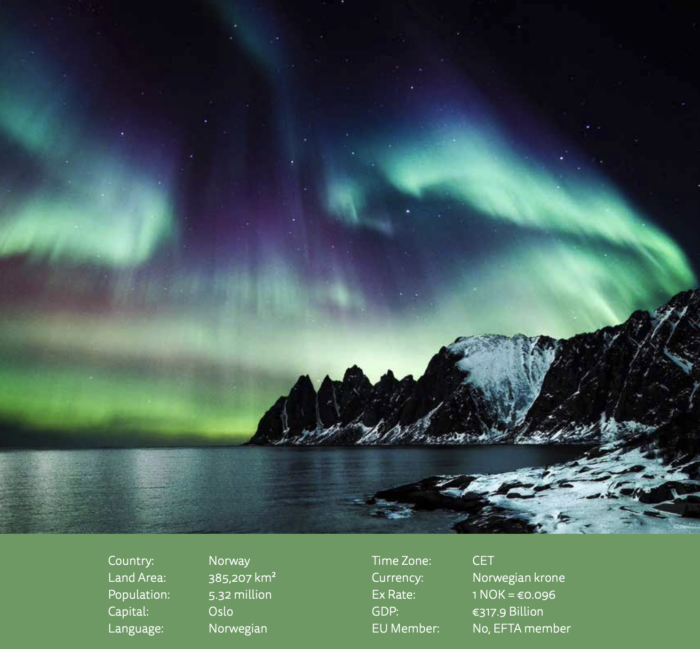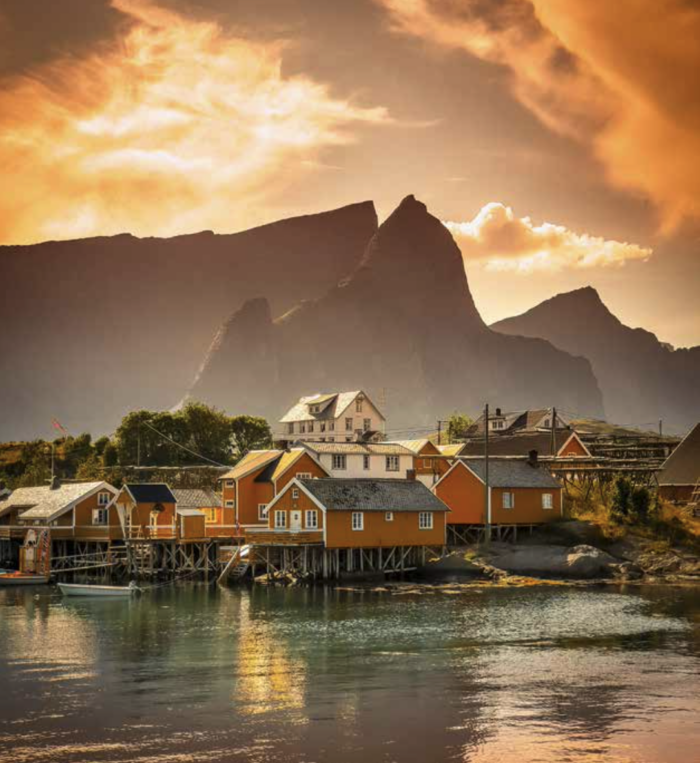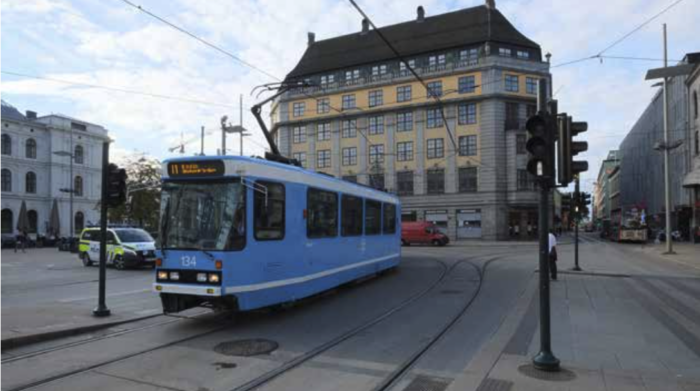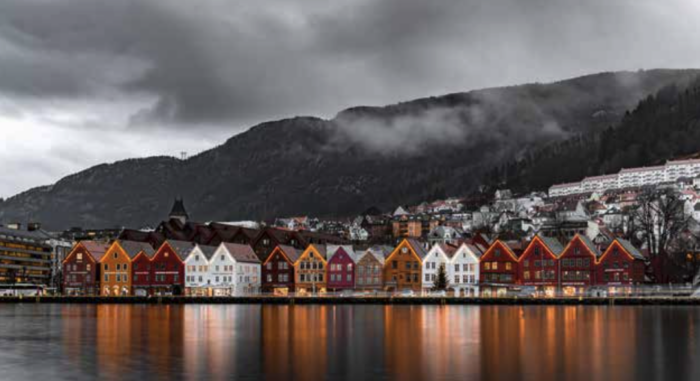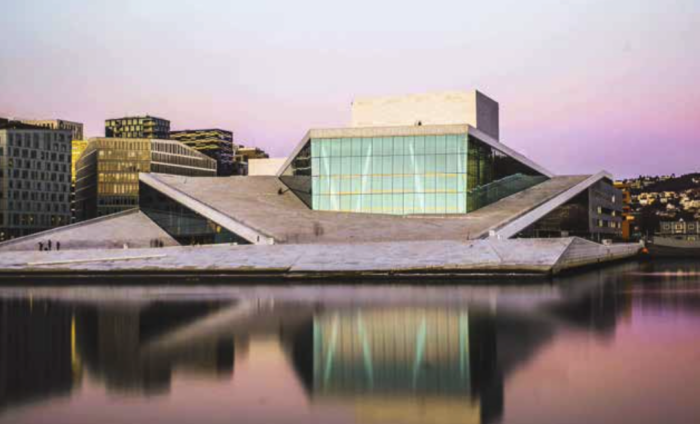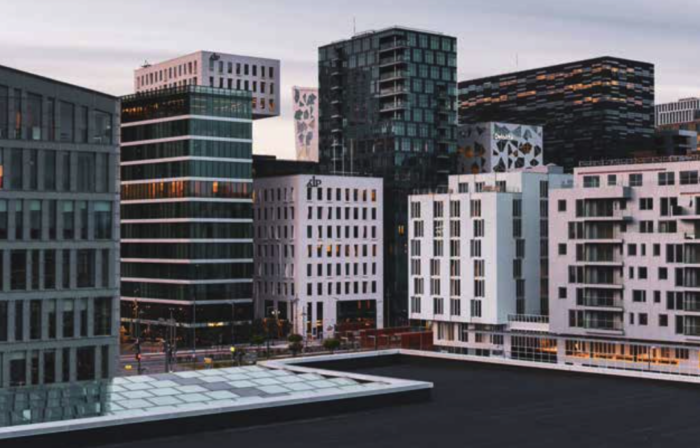The first humans arrived in Norway at around 7,000 BC when rising temperatures from the last ice age made the country habitable. They survived by hunting and fishing until agriculture arrived in 3,000 BC.
During the 9th century, Vikings raided the British Isles as well as France and as far south as Spain. The Vikings didn’t just raid though, some of them settled in the Scottish Islands and even the Isle of Man.
Moving swiftly forward, in 1814, Norway was invaded by Sweden and forced to accept their king. During the reign of the Swedish king, the Norwegians did have some parliamentary powers but did not regain full sovereignty until 1905 when the king was unable to form a new government. It was argued that because of this, the king was no longer acting as a king and in a people’s referendum, the Norwegians voted for independence and the country has been a parliamentary democracy ever since.
Despite declaring neutrality during the Second World War, Germany invaded anyway and after the resistance was overcome, Norway remained occupied until the end of the war. After 1945 Norway gave up the policy of neutrality and in 1949 joined NATO. Norway soon recovered from the war and the next few decades were extremely prosperous. This is especially true for the 1970s which is when Norway began exploiting the oil and gas fields of the North Sea.
Principal Industries in Norway
Norway is richly endowed with natural resources – petroleum, hydropower, fish, forests and minerals – and is highly dependent on its oil production and international oil prices.
Other Important Industries
Although the above industries are the main drivers of Norway’s economy, there are other industries which employ a lot of people. These include aerospace, defence, automotive and ICT among others.
Doing Business in Norway
There are many good reasons for doing business in Norway, such as a highly educated workforce, high productivity, and a long-standing culture of being progressive. On top of this, Norway has one of the world’s strongest economies and gives a high priority to knowledge development, innovation, technology and maintaining sustainable business sectors.
Norway is also a world leader in the oil & gas, energy, maritime and seafood sectors. In addition, the tech sector is absolutely flourishing with companies in Meditech, FinTech, Edtech and other technology clusters all making their mark.
Norway is definitely a proposition for businesses as it has technology clusters, and centres of expertise in innovation which can provide foreign companies with specialist knowledge, relevant networks and potential partners. It is also worth noting that Norway comes 6th in the Ease of Doing Business Survey, which is a very good barometer of whether a country is a viable option or not.
The View from the Ground
When describing a country and its culture, you can write down all the facts and figures you like but if you want the full story, you need to get the perspective of someone with a lived experience of being there. That’s why we’ve asked Jakob to give us his take on what it’s like to live and work in Norway.
Norway can be a bit of a culture shock for people when they come here and see how introverted the Norwegians are. But then, they basically don’t have to offer anyone anything ‘cause what they have to offer is oil, so everyone comes to them. Maybe that changes their personality a bit and makes them like this. There was a joke that came out when Covid hit, and social distancing was introduced. Now that you have to be two and a half metres from the person next to you, Norwegians are now standing closer to each other than they did before the social distancing rules began.
In general, you can see in Norway that the hierarchy is kind of flat and everyone is treated in the same way. It’s not as extreme as in Sweden. I think Sweden is even more intense when it comes to that so yeah, there’s still some sort of hierarchy but it’s very relaxed and everyone can talk to each other and it’s all good. I even spoke to a Danish friend about this, and he said the Danes have a very flat hierarchy and the business decisions are fast and wrong a lot of times. That’s a Norwegian trait as well. If you make fast decisions like we do, you know it might not always be the right decision, whereas if you do it slowly and correctly then it might be a bit more thought through basically. Another thing about the flat hierarchy is that decisions are based on mutual agreement and are something they need to talk about privately among themselves. So, there’s not only one person who calls the shots, everyone has to be involved, which is quite good. You’d think this would make things take longer but it doesn’t work that way. What the Norwegians do is talk about whatever business decision they’re making and then make it kind of quickly depending on who’s in favour and who’s not in favour. For example, I had a meeting with a company to set up a demo for one of my partners and they drew up a POC within the second demo meeting which was extremely fast.
The Norwegians are also really indirect in their communication style. I’d lived here for about 10 years when some of my Dutch family came to Norway. It was a bit of a shock because due to the Coronavirus, I hadn’t seen them for two and a half years and then they were like, “hey, Jakob I really liked your shirt” or “that doesn’t look so good” and I’m like “oh wow, that’s not what I’m used to.” No, they’re very direct and I actually like it and I’m saying like, “oh thank God that you guys are so direct because you make me feel good” or “you give me feedback on the things that are not so great.” And, when I went to the Netherlands, the difference between Norwegians and the Dutch really stood out for me in the airport. I’m walking through Schiphol and someone shouted, “hey Mr, can you help me?” He was like 10 meters away and that’s something that Norwegians will never do. They will not reach out and contact you. That’s just something that does not happen, so in that way, cultural differences are huge, especially in Oslo. In Bergen though, it’s more on the West Coast and it’s a bit more international and a bit more social. Back in the 1700s, a lot of people from Bergen travelled to Amsterdam and they even set up their own little community there. They had their own little square, which I think was actually called the Norwegian square. And this is where Norwegians always travelled to. It’s kind of like when you go to Spain you have your little Dutch corner, or you have your little English corner. Well, that’s what the Norwegians had in Amsterdam.
There’s quite a rivalry between Sweden and Norway. Obviously, because Norway is a young country that came from Denmark and Sweden. Actually, something Norway has in common with the Netherlands is that they both have a huge neighbouring country. So, for example, with the Netherlands it’s Germany and for Norway we also have Russia, which of course is a massive neighbour. So, when we play Russia in any sport, that’s a big, big rivalry.
In Norwegian business meetings, you talk about work straight away. And, you don’t really need to chit chat because they think it’s useless. They don’t see any value in small talk. In Norway, you don’t walk up to someone and start chit chatting, so they don’t do that in business meetings either. There are some occasions where I pick up the phone or I have a meeting with someone, and they are actually very sociable because they have to deal with a lot of international people. So, there are some people out there but generally speaking they are the exception not the rule.
It’s not easy to become firm friends with a Norwegian. They’re very sceptical whenever you want to talk to them as they always feel like you’re trying to sell them something. So, they would consider getting to know someone by just randomly talking to them as weird. If you want to become friends with a Norwegian, it’s not going to happen that quickly. Also, the Norwegians generally do not work that many hours. Actually, I think Norwegians work the least hours in Europe, but they work very effectively, so once they come home they don’t really talk about work. They like to completely separate their work life and home life.
One day that is really celebrated in Norway is the 17th of May, which is National Day. Norwegians are very nationalistic because they’re a young country and so the 17th of May is a big, big day. Everyone is off work; everyone is partying, and everyone is having fun. This is their day, and no
one should ever come in between them and their celebration of it. If you call them on the 17th of May, that’s the only time they will probably get mad at you. This is the one day when the Norwegians start showing emotion, which of course, they would never normally do. The Norwegians are so nationalistic that it can be staggering but a bit funny at the same time. If there is a rock band that is Norwegian, they will tell you. If there’s a song on the radio that is produced or written in the region, they will tell you. So, if there is anything made there, like a pencil, they will tell you, “Oh, that’s made in Norway.”
Another holiday that’s really celebrated is Christmas. That is a really big deal because it’s all about family time and the Norwegians take that very seriously. In fact, I have an ex-girlfriend who always used to spend Christmas with her family. Well, this one Christmas, she couldn’t spend time with her family because she was on holiday with my family. She was extremely upset because family is such an important thing in Norway. The reason they’re so close to their family is because they are not so outgoing. So, within the family there is trust and everything outside of that is a little bit strange. It’s like when they have friends from back in the day, like at school. Well, they’ll generally keep those friends for their whole lives because they are the ones they trust.
There’s a level of safety through certainty in Norway, like you always know you’ll be okay. It’s extremely difficult to lose your job in Norway and it’s like that with rent too. For example, if you’re renting a place there are specific rules that make it very difficult to get you out. It’s the same thing with jobs. You cannot easily lose your job because you need to get written up multiple times, and then still after that there needs to be an extremely good reason for you to get fired, which almost never happens. I’ve never heard, in my 10 years of living here, that someone got fired in Norway. And, before you get a government job, they will do lots of background checks and they will do a lot of research before they hire you and then once you’re in, you can’t be fired.
Humour in the office isn’t a big thing in Norway. I’ve worked with a lot of foreigners though and there’s humour there, but if you work with a lot of Norwegians then it might get a little dull sometimes. Also, it’s not like we all go out on a Friday night after work. Maybe some Friday nights you drink a beer together at the office and then you go home.
There’s always a rivalry with Sweden and that even comes down to the language. Swedish people cannot understand Norwegians as much as Norwegians can understand Swedes and that’s great because it drives them mad. We even have Swedish on the television and not the other way around. Also, the languages are funny in the Nordics because they’re all kind of similar but different. I can understand a lot of Danish and Swedish but then when it comes to Finnish, I get lost.
Another thing about the Norwegians is whenever they go on holiday, they prefer to find their own people. They only want to stick with other Norwegians, no matter if they go to Spain or Greece or wherever. And then, when they come back to Norway they’re like, “Oh I really liked it in Spain but I’m glad I’m home now in between the mountains.” It’s kind of ridiculous because I always thought you know, when I’m in Spain I don’t want to leave, it’s nice weather. In Norway, it’s the winter, there’s snow, it’s minus 20 degrees. Yeah, but Norwegians are fonder of themselves and their country than they are of any place or anyone else.
Business Etiquette
Norwegians are very progressive and open to new ideas but in terms of business etiquette, there are still some customs that are held in high regard. Therefore, there are certain things you will need to bear in mind. Business dress in Norway is based on a smart casual look, although, if you’re attending a more formal meeting, more formal attire will be required. Greetings are done with a handshake after which, business cards are exchanged and there is a little small talk before business proceeds. Suitable topics for small talk include winter sports and outdoor pursuits. Do stay away from politics and if you could drop the names of a few famous Norwegians into conversation, that’s always appreciated. As for business negotiations, a structured, goal-oriented approach to work is expected. Don’t be afraid to say what you think but don’t try to force a decision either.

